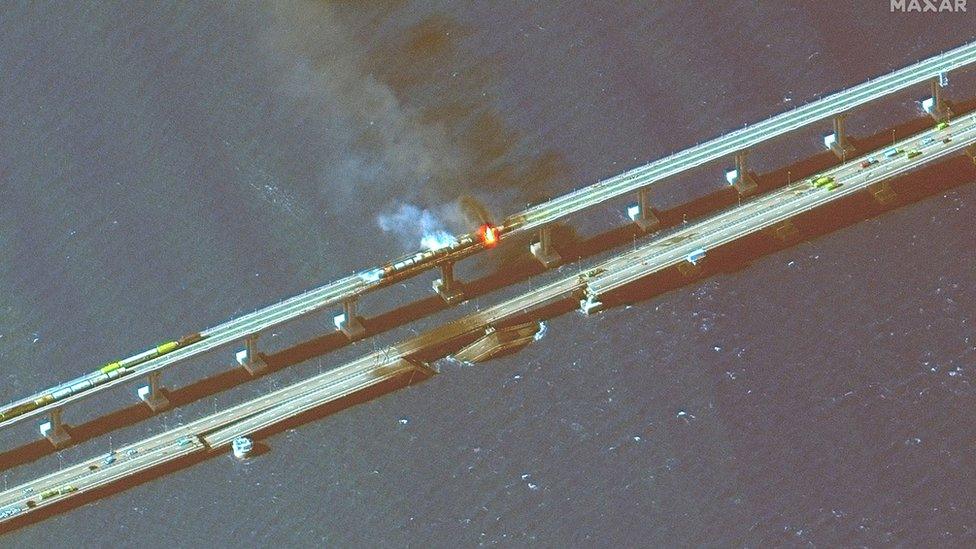Ukraine war: Russia halts grain deal after 'massive' Black Sea Fleet attack
- Published
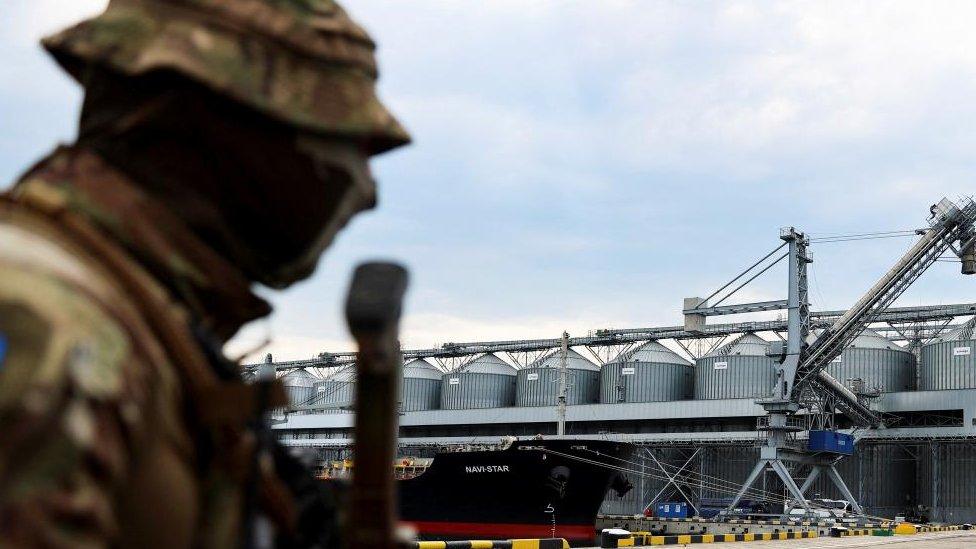
The grain deal has been hailed as a triumph of diplomacy
Russia has announced it is suspending its involvement in the internationally-brokered deal that allows Ukraine to export grain from its Black Sea ports.
It comes after Russia accused Ukraine of a "massive" drone attack on the Black Sea Fleet in Sevastopol, Crimea.
Ukraine has not admitted the attack and President Volodymyr Zelensky called the Russian move "rather predictable".
Without providing evidence, Russia also accused British troops of being involved in Saturday's attack.
It also accused the UK of blowing up gas pipelines last month.
In its response, the UK Ministry of Defence (MoD) said Russia was "peddling false claims of an epic scale".
Russia's defence ministry says drones used in Saturday's attack targeted ships involved in the grain deal. It said one vessel had received minor damage.
Hours later, a statement by the foreign ministry in Moscow said: "The Russian side cannot guarantee the safety of civilian dry cargo ships participating in the 'Black Sea Initiative', and suspends its implementation from today for an indefinite period."
It said the move was "in connection with the actions of the Ukrainian armed forces, which were led by British specialists" and that these actions "were directed... against Russian ships that ensured the functioning of the said humanitarian corridor".
Moscow claimed 16 aerial and maritime drones were destroyed, and that only a minesweeper had sustained damage.
It is not yet clear whether that is indeed the case, with reports suggesting that the flagship frigate was also hit. Claims and counterclaims have become part of this war.
President Zelensky said Russia's decision was not one that had been made today, but in September "when it blocked the movement of ships with our food produce".
"Why is it that some handful of individuals somewhere in the Kremlin can decide whether there will be food on the tables of people in Egypt or in Bangladesh?" he added.
Mr Zelensky said a strong international response was needed from both the UN and the world's twenty largest economies.
The White House said Russia was "weaponising food".
A UN spokesman said the organisation, which brokered the deal with Turkey, was in touch with Moscow.
It added that it was "vital that all parties refrain from any action that would imperil the Black Sea Grain Initiative", which it said was a critical humanitarian effort improving access to food for millions of people around the world.
The agreement allowed Ukraine to resume its Black Sea grain exports, which had been blocked when Russia invaded the country.
It was personally negotiated by the UN secretary general and celebrated as a major diplomatic victory that helped ease a global food crisis.
But Russia has complained that its own exports are still hindered, and had previously suggested it might not renew the deal.
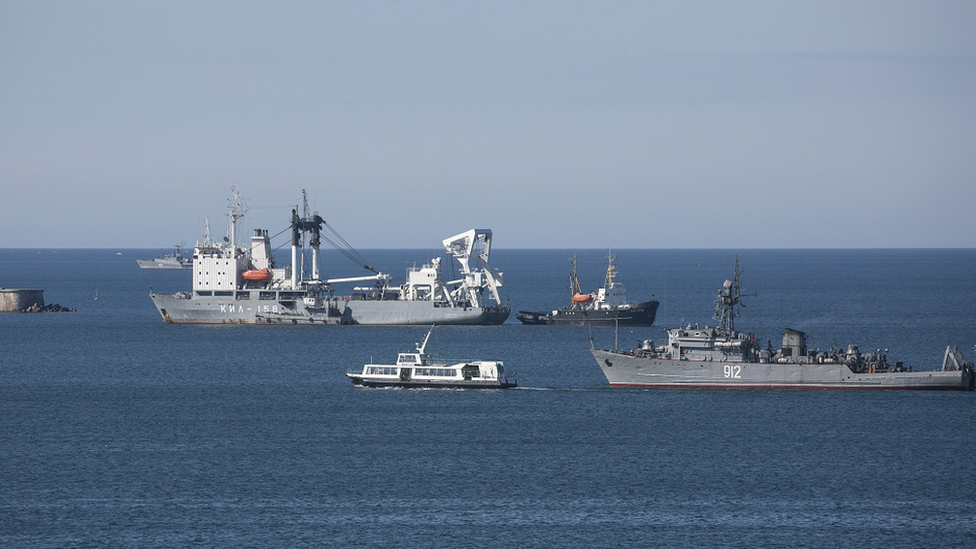
The Russian Navy at the entrance to the port city of Sevastopol in 2014
In recent days, Kyiv has accused Moscow of deliberately delaying the passage of ships, creating a queue of more than 170 vessels.
Saturday's drone attack comes as Ukrainian troops successfully retake territory occupied by Russian troops since they launched their invasion on 24 February.
Russia has responded by launching large-scale attacks on Ukrainian infrastructure, particularly on the country's energy grid.
Crimea was annexed by Russia from Ukraine in 2014 and is extremely symbolic for Russian President Vladimir Putin.
In recent weeks, several attacks have hit the peninsula, where the Russian army has built up a large presence.
Sevastopol is the largest city in the region and home to Russia's Black Sea fleet.
Mikhail Razvozhaev, the Russian-installed governor of the city, said Russia's navy had repelled the latest attack - the "most massive" on the city since February.
He said that all unmanned aerial vehicles (UAVs) had been shot down and no civilian infrastructure had been damaged.
The Ukrainian government rarely comments on claims made by Russian authorities in Crimea, although senior officials often celebrate incidents on the peninsula.
Ukraine has vowed to recapture all territory that is under Russian occupation, including Crimea, which has been a key base for President Putin's forces during the invasion of Ukraine.
Without providing any evidence, the Russian defence ministry also accused British navy specialists of helping Ukrainian forces prepare the attack on Saturday morning.
It also said the same unit was "involved in plotting, organising, and implementation of the terrorist attack in the Baltic Sea on 26 September this year to blow up the Nord Stream 1 and Nord Stream 2 gas pipelines".
In its reply, the MoD said: "To detract from their disastrous handling of the illegal invasion of Ukraine, the Russian Ministry of Defence is resorting to peddling false claims of an epic scale.
"This invented story, says more about arguments going on inside the Russian government than it does about the west."
France also said it did not believe the Russian allegations.
In recent days, Russia has been engaged in what US and Ukrainian officials describe as a disinformation campaign, with unsubstantiated claims that Kyiv is preparing to use a radioactive dirty bomb, or even biological mosquitoes.
Russia's Black Sea Fleet was previously targeted in April this year by Ukrainian forces when its flagship warship, the Moskva, was sunk. The 510-crew missile cruiser had led Russia's naval assault on Ukraine, and its sinking was a major symbolic and military blow.
Earlier this month, a blast occurred on the Crimean bridge - a pivotal symbol of Russia's annexation of Crimea.
The blast killed three people, Russian investigators said.
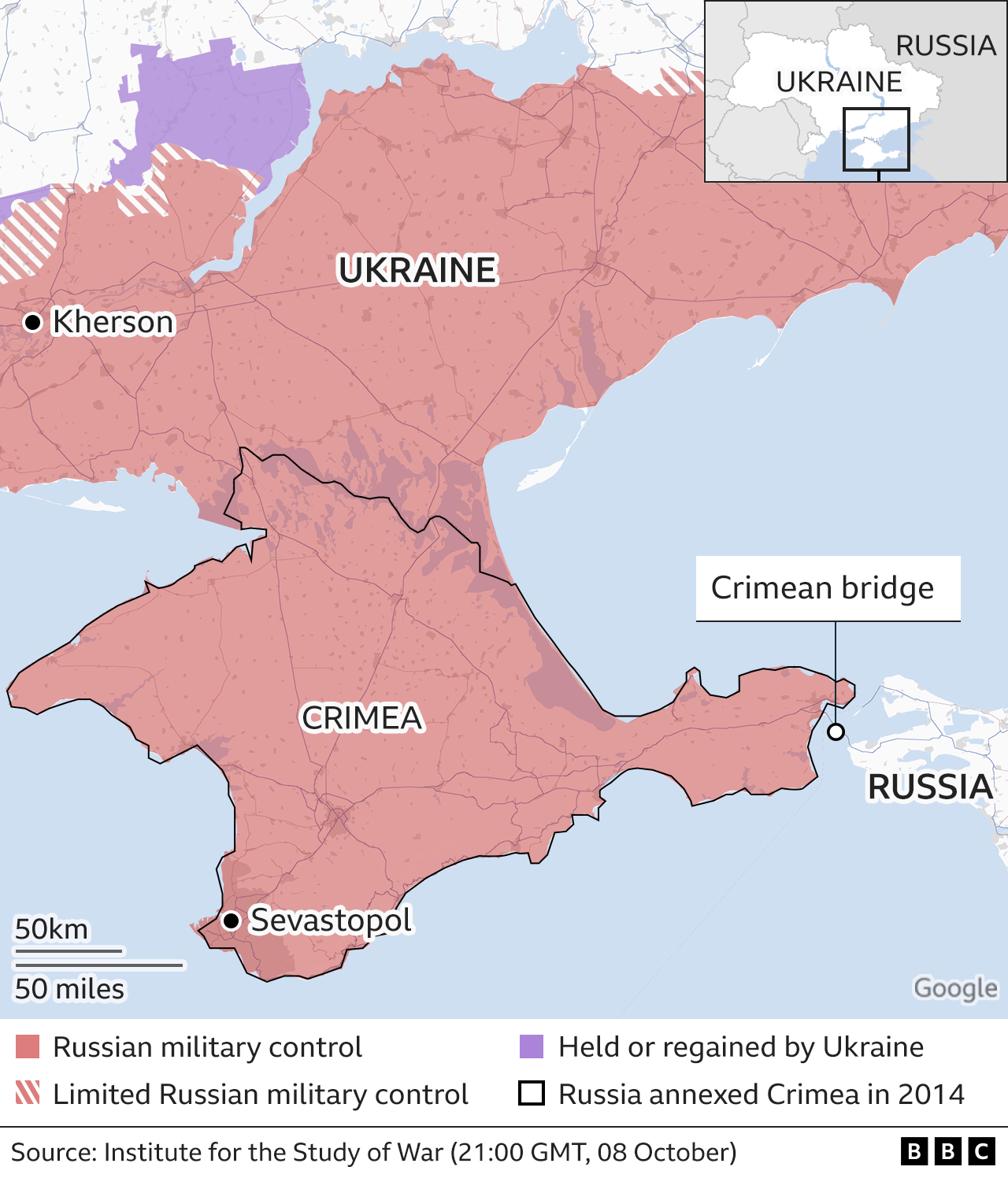
Related topics
- Published10 October 2022
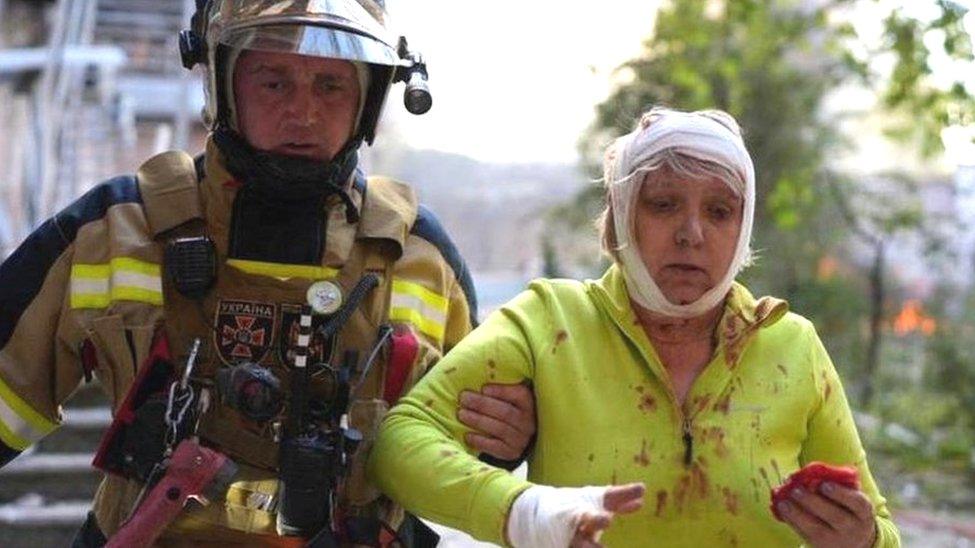
- Published2 April 2024
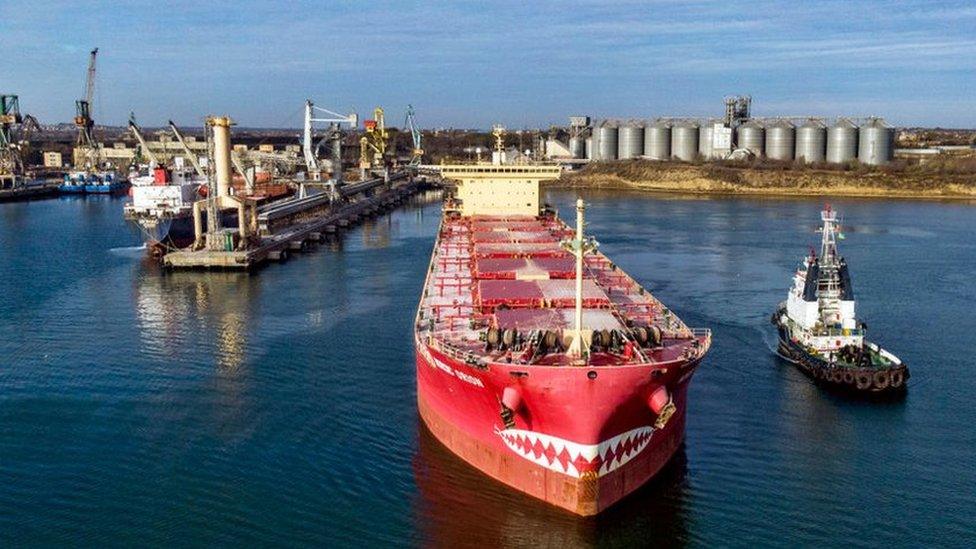
- Published19 August 2022
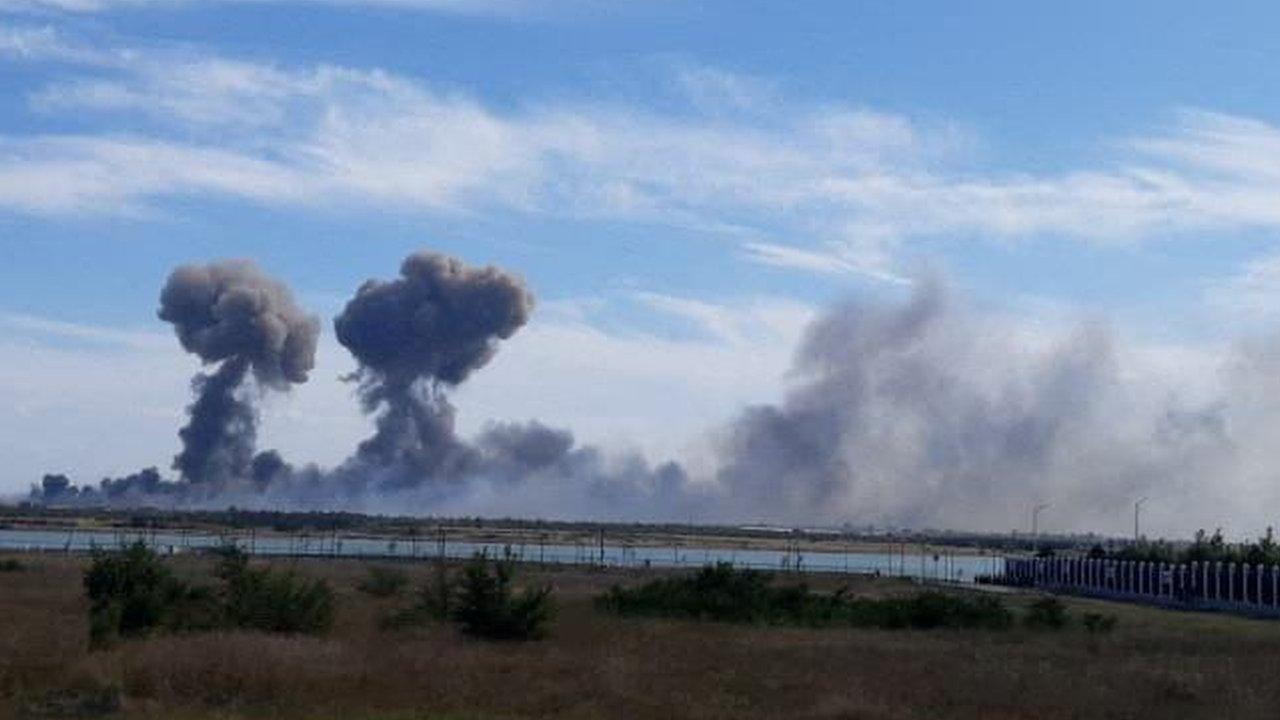
- Published9 October 2022
